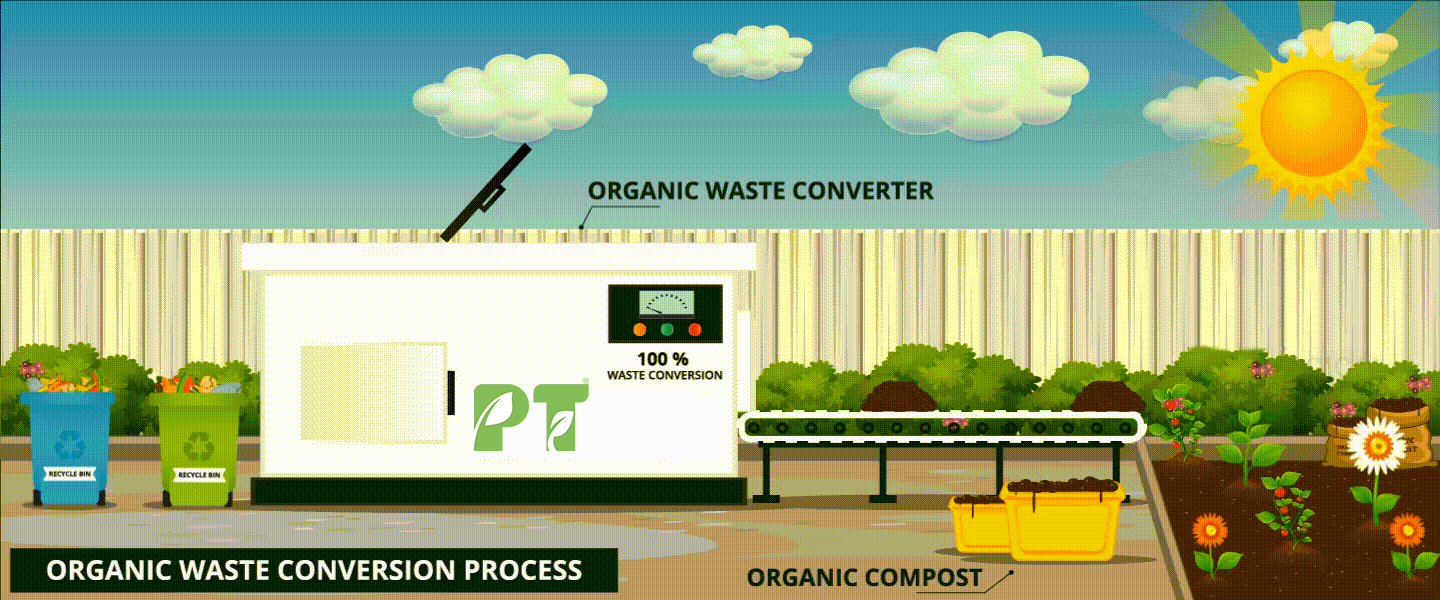
Organic Waste Composters
What is an Organic Waste Composter (OWC) and Why Is It Important?
An Organic Waste Composter (OWC) is a sustainable system that converts biodegradable waste—such as food scraps, kitchen waste, and garden debris—into nutrient-rich compost. By replicating natural decomposition in a controlled environment, the OWC reduces landfill waste, lowers greenhouse gas emissions, and supports soil health.
Importance of Organic Waste Composting:
- Minimizes landfill contribution and associated methane emissions
- Produces high-quality organic compost for landscaping, gardening, or agriculture
- Promotes sustainable waste management and circular economy
- Reduces dependency on chemical fertilizers
- Ideal for eco-conscious homes, businesses, and institutions
Why Choose PT Ecological’s Organic Waste Composter?
At PT Ecological Services Private Limited, we offer cutting-edge Organic Waste Composters engineered for efficiency, durability, and environmental impact. Our systems are tailored to your unique needs, supported by expert service at every step.
Here’s What Sets Us Apart:
- Site evaluation and consultation
- Customized system design based on daily waste generation
- Turnkey installation and commissioning
- On-site training for operational staff
- Scheduled and on-call maintenance services
- Performance monitoring and process optimization
Key Features of Our Organic Waste Composter
- Customized Solutions: Tailor-made for varying waste volumes, space constraints, and composting goals.
- Comprehensive Services: End-to-end support from planning to training and maintenance.
- High-Quality Components: Built with durable materials and automation for long-term performance.
- Efficient Composting Process: Delivers rich compost in just 4–6 weeks with optimized environmental control.
- Versatile Waste Handling: Processes all kinds of organic waste including peels, leftovers, garden debris, and more.
Benefits of Installing an Organic Waste Composter
- Reduces landfill dependency and greenhouse gas emissions
- Converts daily waste into eco-friendly compost
- Enhances soil fertility for gardens or farms
- Cuts down on waste disposal costs
- Meets sustainability and green certification goals (like IGBC, GRIHA)
- Promotes eco-conscious practices within communities and organizations
Key Features of Our Organic Waste Composter
- Customized Solutions: Tailor-made for varying waste volumes, space constraints, and composting goals.
- Comprehensive Services: End-to-end support from planning to training and maintenance.
- High-Quality Components: Built with durable materials and automation for long-term performance.
- Efficient Composting Process: Delivers rich compost in just 4–6 weeks with optimized environmental control.
- Versatile Waste Handling: Processes all kinds of organic waste including peels, leftovers, garden debris, and more.
Benefits of Installing an Organic Waste Composter
- Reduces landfill dependency and greenhouse gas emissions
- Converts daily waste into eco-friendly compost
- Enhances soil fertility for gardens or farms
- Cuts down on waste disposal costs
- Meets sustainability and green certification goals (like IGBC, GRIHA)
- Promotes eco-conscious practices within communities and organizations
Why Organic Waste Composting Matters
Organic Waste Composters (OWCs) offer a simple yet powerful solution to turn everyday biodegradable waste into nutrient-rich compost. Instead of rotting in landfills and releasing harmful methane gases, organic waste is transformed into a natural fertilizer that boosts soil health and reduces the need for chemical alternatives.
Why It’s Important & Necessary:
- Reduces landfill load and harmful methane emissions
- Supports circular economy by converting waste into a usable resource
- Improves soil fertility naturally—ideal for gardens, farms, and landscapes
- Lowers reliance on chemical fertilizers and promotes organic practices
- Perfect for homes, societies, hotels, hospitals, institutions & businesses
- Helps meet sustainability goals and government waste regulations
Why Choose PT Ecological for Your OWC System?
PT Ecological Services Pvt. Ltd. delivers tailor-made, reliable, and efficient Organic Waste Composters backed by expert support from consultation to maintenance.
What Sets Us Apart:
- Site-Specific Evaluation – We assess your space and waste output to recommend the best-fit solution
- Custom-Engineered Systems – Designed based on daily waste load for maximum efficiency
- Turnkey Installation & Setup – Hassle-free setup with end-to-end project execution
- Hands-On Staff Training – Your team is trained to manage the system with ease
- After-Sales Support – Scheduled maintenance, emergency service, and system performance optimization
How Does an Organic Waste Composter Work?
An Organic Waste Composter uses aerobic decomposition, where natural microbes break down organic matter in the presence of oxygen, transforming waste into nutrient-rich compost.
The Process:
- Collection – Biodegradable waste is gathered and fed into the OWC
- Mixing – Waste is mechanically blended for uniform breakdown
- Aeration & Moisture Control – Oxygen and humidity levels are optimized for microbial growth
- Decomposition – Microorganisms process the waste over 4–6 weeks
- Compost Output – The result is clean, odorless, ready-to-use organic compost
Fast, natural, and eco-friendly—turn your daily waste into a valuable resource.
Benefits of Installing an Organic Waste Composter
- Reduce landfill load and lower carbon footprint
- Convert daily organic waste into valuable, eco-friendly compost
- Improve soil health for landscaping, gardening, or agriculture
- Cut down on municipal waste handling and disposal costs
- Support sustainability mandates and green building certifications (IGBC, GRIHA, etc.)
- Foster environmentally conscious habits in homes, institutions, and industries
Key Features of Our Organic Waste Composter
- Tailored Design – Customized to your daily waste volume, available space, and composting goals
- End-to-End Service – From planning and installation to staff training and maintenance
- Durable Build – High-quality components for long-term, low-maintenance performance
- Fast Processing – Produces rich compost within 4–6 weeks using optimized conditions
- Multi-Waste Compatibility – Handles food scraps, garden waste, and biodegradable materials
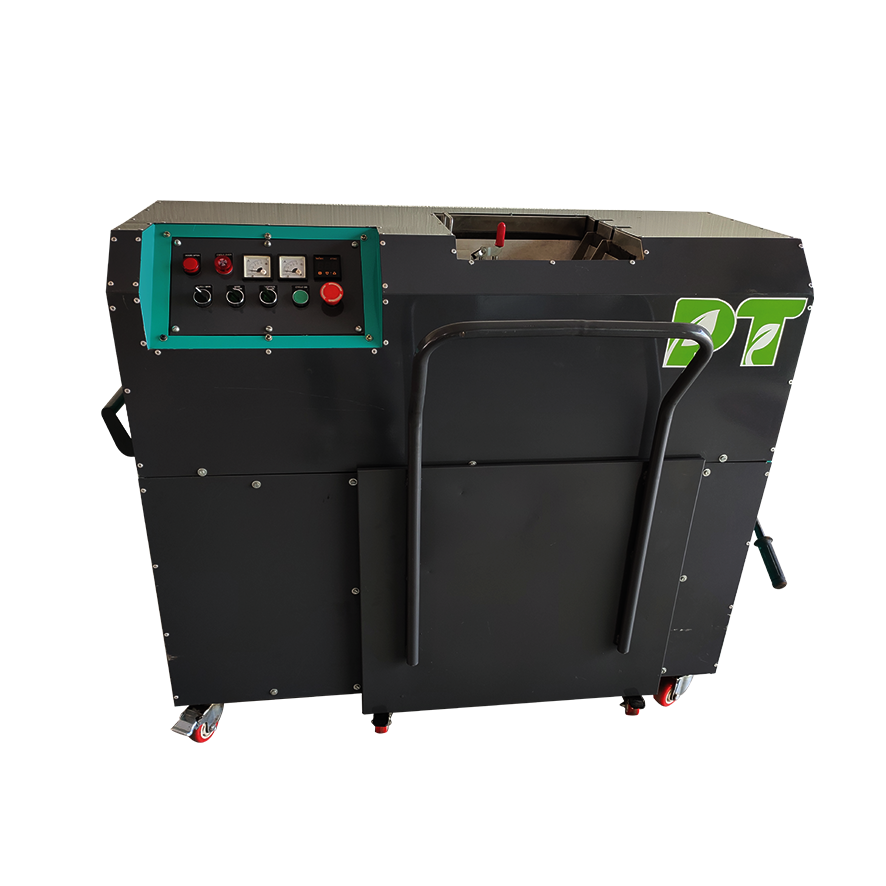
| MODEL NAME: | SEMI AUTOMATIC COMPOST MACHINE | |
|---|---|---|
| Model No | Batch Capacity | Machine Dimensions(Ft) |
| OCM 25 | 15 | 3.60 x 2.46 x 2.78 |
| OCM 50 | 15 | 3.60 x 2.46 x 2.78 |
| OCM 75 | 15 | 3.60 x 2.46 x 2.78 |
| OCM 100 | 15 | 3.60 x 2.46 x 2.78 |
| OCM 125 | 15 | 3.60 x 2.46 x 2.78 |
| OCM 150 | 15 | 3.60 x 2.46 x 2.78 |
| OCM 180 | 15 | 3.60 x 2.46 x 2.78 |
| OCM 200 | 30 | 4.75 x 2.46 x 3.60 |
| OCM 250 – 300 | 30 | 4.75 x 2.46 x 3.60 |
| OCM 400 – 450 | 30 | 4.75 x 2.46 x 3.60 |
| OCM 500 | 50 | 5.24 x 2.78 x 3.93 |
| OCM 600 – 10000 | As Per Request | |
For e-brochure click here CLICK HERE
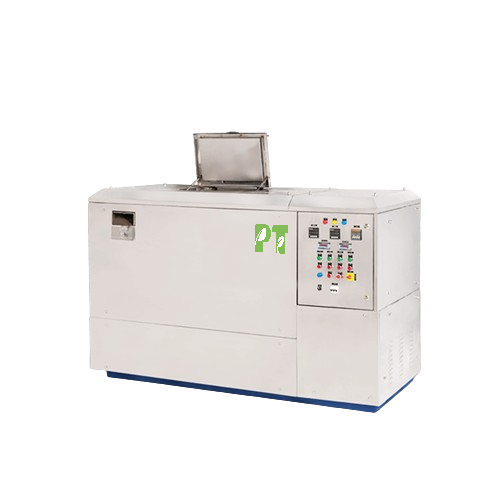
| MODEL NAME: | FULLY AUTOMATIC COMPOST MACHINE | |
|---|---|---|
| Model No | Machine Dimensions | Other Details |
| OCMA 25 | 900 x 700 x 1050 mm (3 x 2.30 x 3.45 Ft) | Power Supply- 415-440 Volts / 50 Hz Phase – III Phase Power Rating of Machine- 2.47 kW |
| OCMA 50 | 1000 x 800 x 1250 mm (3.28 x 2.63 x 4,10 Ft) | Power Supply- 415-440 Volts / 50 Hz Phase – III Phase Power Rating of Machine- 3.47 kW |
| OCMA 100 | 1400 x 900 x 1350 mm (4.60 x 2.95 x 4.45 Ft) | Power Supply- 415-440 Volts / 50 Hz Phase – III Phase Power Rating of Machine- 4.97 kW |
| OCMA 200 | 1800 x 1000 x 1450 mm ( 5.90 x 3.28 x 4.76 Ft ) | Power Supply- 415-440 Volts / 50 Hz Phase – III Phase Power Rating of Machine- 8.30 kW |
| OCMA 300 | 2200 x 1100 x 1550 mm ( 7.22 x 3.60 x 5.08 Ft ) | Power Supply- 415-440 Volts / 50 Hz Phase – III Phase Power Rating of Machine- 11.1 kW |
| OCMA 400 | 2500 x 1200 x 2300 mm (8.20 x 3.93 x 7.54 Ft) | Power Supply- 415-440 Volts / 50 Hz Phase – III Phase Power Rating of Machine- 14.10 kW |
| OCMA 500 | 3000 x 1300 x 1750 mm ( 9.85 x 4.26 x 5.75 Ft ) | Power Supply- 415-440 Volts / 50 Hz Phase – III Phase Power Rating of Machine- 15.1 kW |
| OCMA 700 | 3800 x 1500 x 1950 mm (12.48 x 4.93 x 6.40 Ft) | Power Supply- 415-440 Volts / 50 Hz Phase – III Phase Power Rating of Machine- 19.65 kW |
| OCMA 1000 | 5000 x 2000 x 2500 mm (16.4 x 6.5 x 8.2 Ft) | Power Supply- 415-440 Volts / 50 Hz Phase – III Phase Power Rating of Machine- 27.62 kW |
For e-brochure click here CLICK HERE
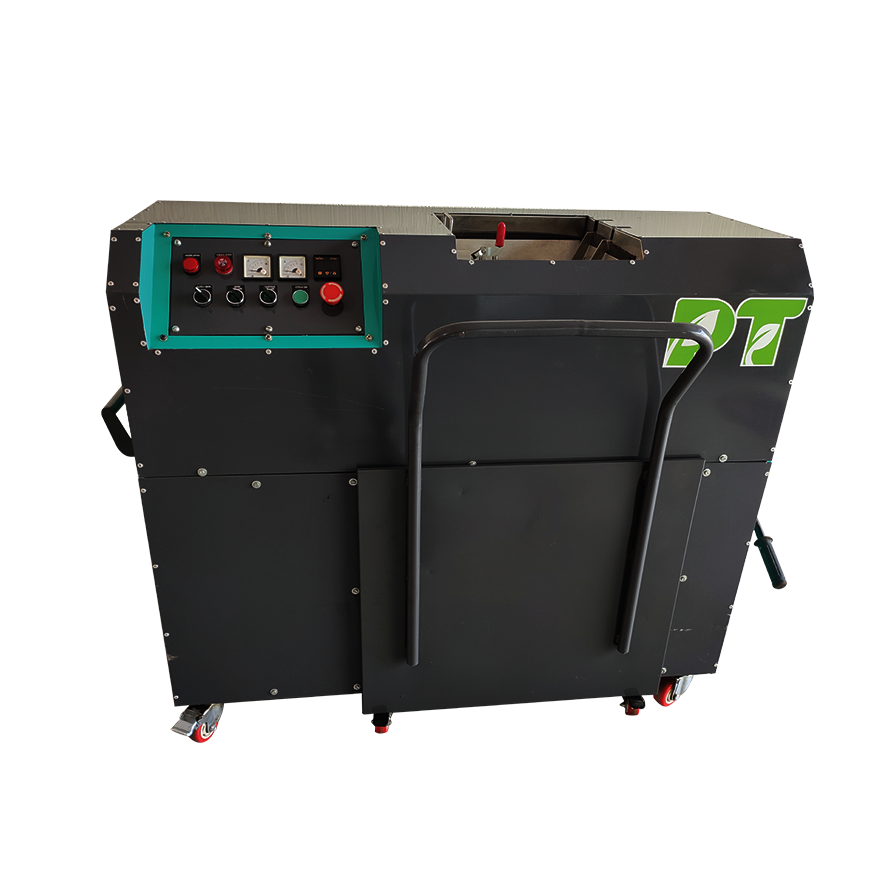
| MODEL NAME: | SEMI AUTOMATIC COMPOST MACHINE | |
|---|---|---|
| Model No | Batch Capacity | Machine Dimensions(Ft) |
| OCM 25 | 15 | 3.60 x 2.46 x 2.78 |
| OCM 50 | 15 | 3.60 x 2.46 x 2.78 |
| OCM 75 | 15 | 3.60 x 2.46 x 2.78 |
| OCM 100 | 15 | 3.60 x 2.46 x 2.78 |
| OCM 125 | 15 | 3.60 x 2.46 x 2.78 |
| OCM 150 | 15 | 3.60 x 2.46 x 2.78 |
| OCM 180 | 15 | 3.60 x 2.46 x 2.78 |
| OCM 200 | 30 | 4.75 x 2.46 x 3.60 |
| OCM 250 – 300 | 30 | 4.75 x 2.46 x 3.60 |
| OCM 400 – 450 | 30 | 4.75 x 2.46 x 3.60 |
| OCM 500 | 50 | 5.24 x 2.78 x 3.93 |
| OCM 600 – 10000 | As Per Request | |
For e-brochure click here CLICK HERE
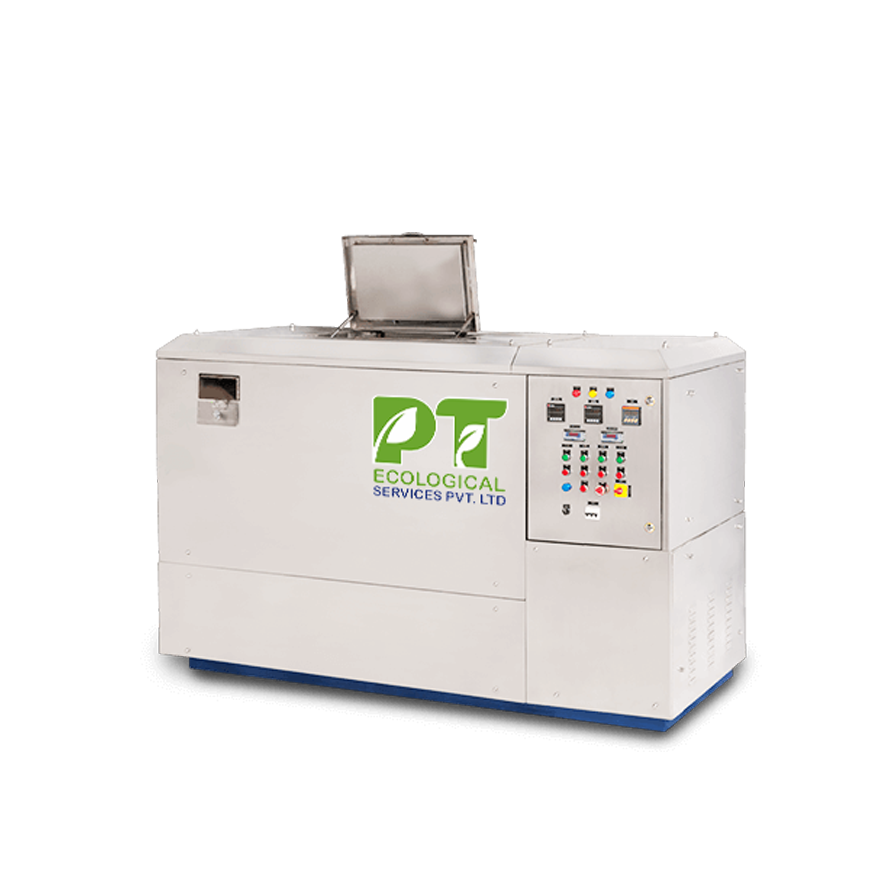
| MODEL NAME: | FULLY AUTOMATIC COMPOST MACHINE | |
|---|---|---|
| Model No | Machine Dimensions | Other Details |
| OCMA 25 | 900 x 700 x 1050 mm (3 x 2.30 x 3.45 Ft) | Power Supply- 415-440 Volts / 50 Hz Phase – III Phase Power Rating of Machine- 2.47 kW |
| OCMA 50 | 1000 x 800 x 1250 mm (3.28 x 2.63 x 4,10 Ft) | Power Supply- 415-440 Volts / 50 Hz Phase – III Phase Power Rating of Machine- 3.47 kW |
| OCMA 100 | 1400 x 900 x 1350 mm (4.60 x 2.95 x 4.45 Ft) | Power Supply- 415-440 Volts / 50 Hz Phase – III Phase Power Rating of Machine- 4.97 kW |
| OCMA 200 | 1800 x 1000 x 1450 mm ( 5.90 x 3.28 x 4.76 Ft ) | Power Supply- 415-440 Volts / 50 Hz Phase – III Phase Power Rating of Machine- 8.30 kW |
| OCMA 300 | 2200 x 1100 x 1550 mm ( 7.22 x 3.60 x 5.08 Ft ) | Power Supply- 415-440 Volts / 50 Hz Phase – III Phase Power Rating of Machine- 11.1 kW |
| OCMA 400 | 2500 x 1200 x 2300 mm (8.20 x 3.93 x 7.54 Ft) | Power Supply- 415-440 Volts / 50 Hz Phase – III Phase Power Rating of Machine- 14.10 kW |
| OCMA 500 | 3000 x 1300 x 1750 mm ( 9.85 x 4.26 x 5.75 Ft ) | Power Supply- 415-440 Volts / 50 Hz Phase – III Phase Power Rating of Machine- 15.1 kW |
| OCMA 700 | 3800 x 1500 x 1950 mm (12.48 x 4.93 x 6.40 Ft) | Power Supply- 415-440 Volts / 50 Hz Phase – III Phase Power Rating of Machine- 19.65 kW |
| OCMA 1000 | 5000 x 2000 x 2500 mm (16.4 x 6.5 x 8.2 Ft) | Power Supply- 415-440 Volts / 50 Hz Phase – III Phase Power Rating of Machine- 27.62 kW |
For e-brochure click here CLICK HERE
FAQ
Fruit/vegetable peels, tea leaves, coffee grounds, flowers, and garden waste work best.
Our systems range from compact units for homes to large-scale ones for communities and institutions.
Yes, OWCs are available in sizes fit for homes, societies, offices, and institutions.
PT Ecological provides expert guidance based on your waste volume, space, and goals.
Typically 4 to 6 weeks, depending on waste type, moisture, and composting conditions.
Balance green and brown waste, mix regularly, and ensure proper aeration and moisture.
Not if carbon-nitrogen balance, moisture, and aeration are maintained—our systems are odor-free.
Yes, it enhances soil quality for vegetables, flowers, trees, and indoor plants.
FAQ
Fruit/vegetable peels, tea leaves, coffee grounds, flowers, and garden waste work best.
Fruit and vegetable peels, coffee grounds, eggshells, garden clippings, and dry leaves; avoid meat, dairy, and oily food.
Our systems range from compact units for homes to large-scale ones for communities and institutions.
Yes, OWCs are available in sizes fit for homes, societies, offices, and institutions.
PT Ecological provides expert guidance based on your waste volume, space, and goals.
It reduces landfill waste, produces nutrient-rich compost, cuts emissions, and improves soil health.
Typically 4 to 6 weeks, depending on waste type, moisture, and composting conditions.
Balance green and brown waste, mix regularly, and ensure proper aeration and moisture.
Not if carbon-nitrogen balance, moisture, and aeration are maintained—our systems are odor-free.
Add more dry waste, improve aeration, and reduce excess moisture to fix the odor.
Yes, it enhances soil quality for vegetables, flowers, trees, and indoor plants.
